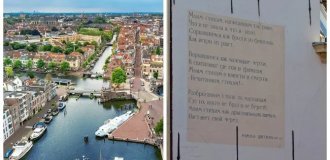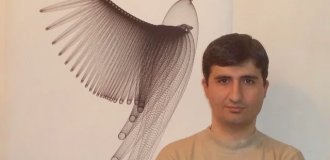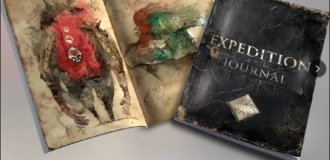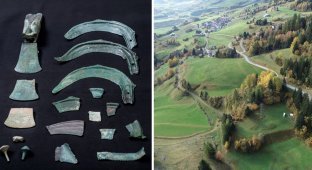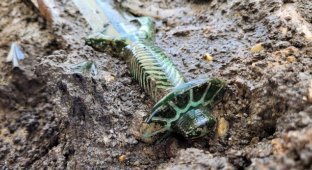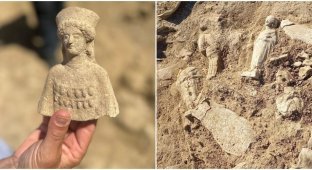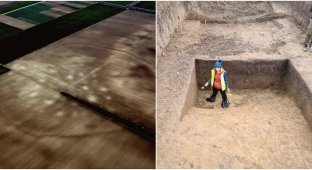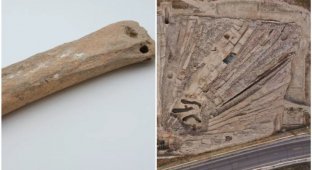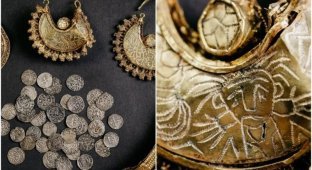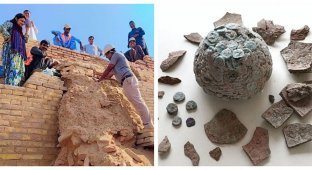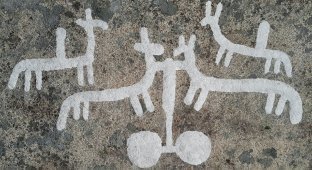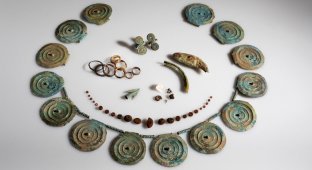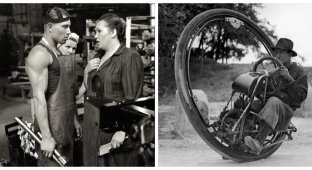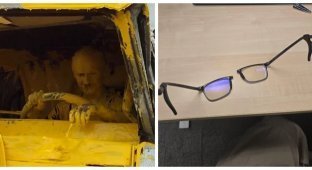Bronze Age swords and a treasure of Slavic coins were found in Germany (5 photos)
Volunteer archaeologists have made valuable finds during excavations in Germany. Among them are seven Bronze Age swords and a hoard of Slavic coins, now considered the largest hoard of the post-war period. The find can tell archaeologists a lot about life at that time. 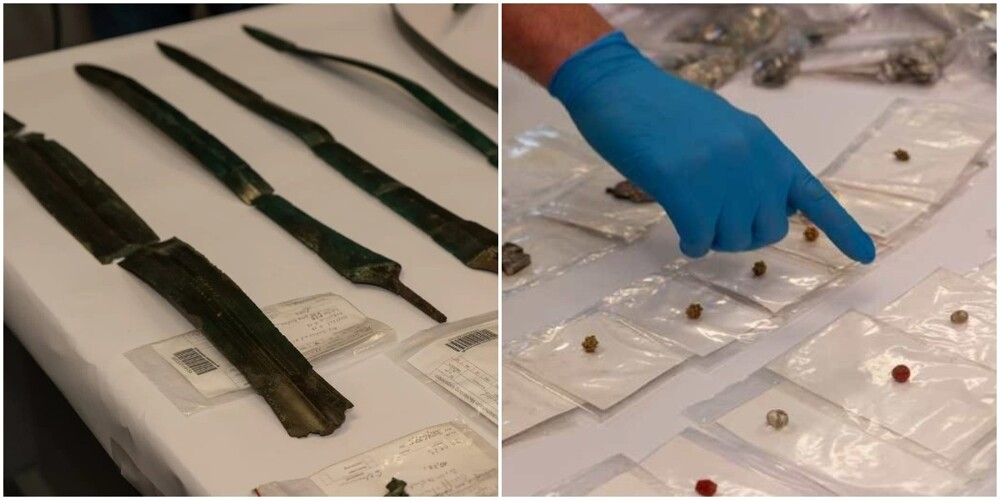
The German Office for Culture and Monument Protection presented valuable finds made by volunteer archaeologists near the Mecklenburg Lake District, Germany. Among them are seven Bronze Age swords, 6 thousand silver coins from the 11th century and a treasure from the 11th century. Archaeologists carefully assembled seven swords from fragments, almost completely reconstructing them. It is assumed that the fragments appeared in these places long ago, when trenches were dug here, and then were scattered over a large area along with other artifacts. Scientists admitted that they had never before found so many Bronze Age swords in one place. They determined that the swords were approximately 3,000 years old, placing them in the Bronze Age. 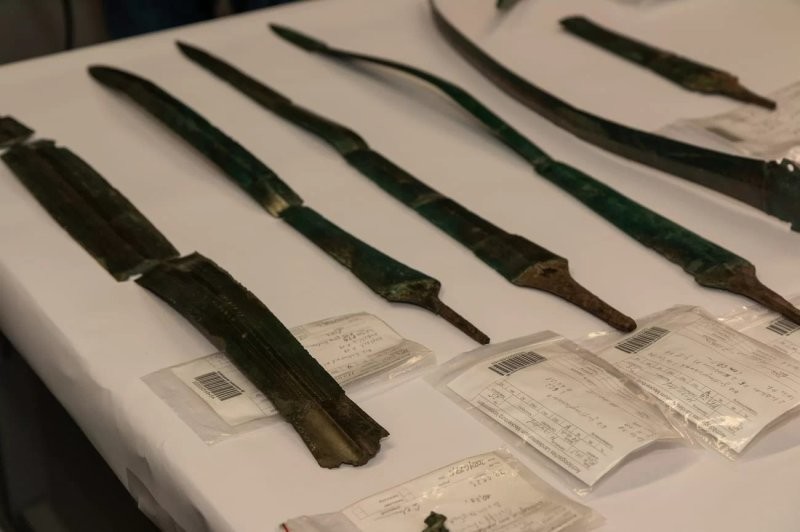
Seven swords recreated from fragments
Six thousand silver coins from the 11th century were discovered on the island of Rügen. They were scattered over a vast area, but most were in a clay vessel. Some of the coins come from Western Germany, and some from the Meissen and Upper Lusatia regions. About 10% of the coins come from England, Denmark, Bohemia (historical region in Central Europe) and Hungary. The find was recognized as the largest treasure of Slavic coins of the post-war period to date. According to archaeologists, the coins will allow us to learn more about trade relations of that time. 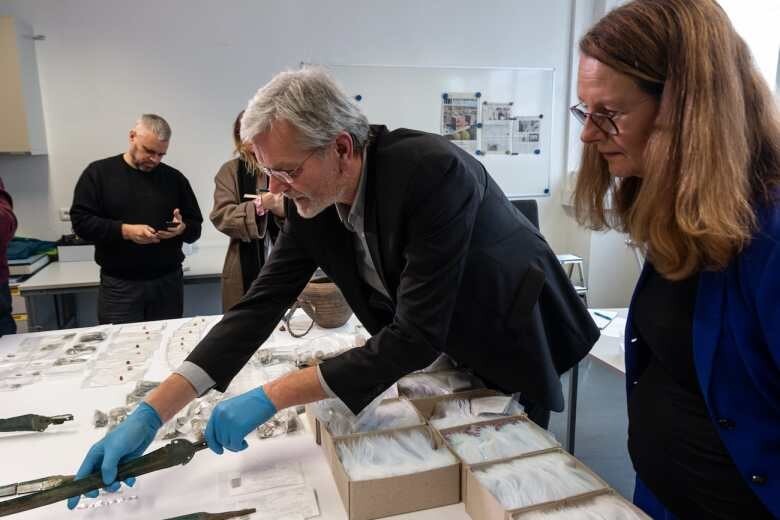
State Archaeologist Detlef Jantzen and Minister of Education Bettina Martin
Another valuable treasure was discovered in the Mecklenburg area. In the clay vessel they found about 1,700 coins, rings, a pearl necklace with beads made of gold, rock crystal and carnelian, as well as two reliquaries in the form of a cross. The latter are a unique testimony to the Christian faith in this region. During the presentation of the finds, scientists especially noted the work of volunteer archaeologists who have been working in Mecklenburg-Vorpommern for a long time, preserving archaeological sites and making valuable finds. There are currently about 250 volunteers working there. 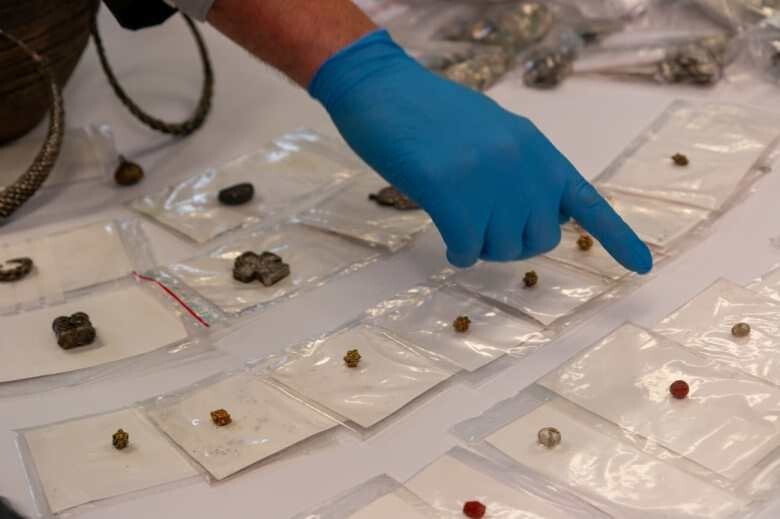
Small beads and other objects found during excavations 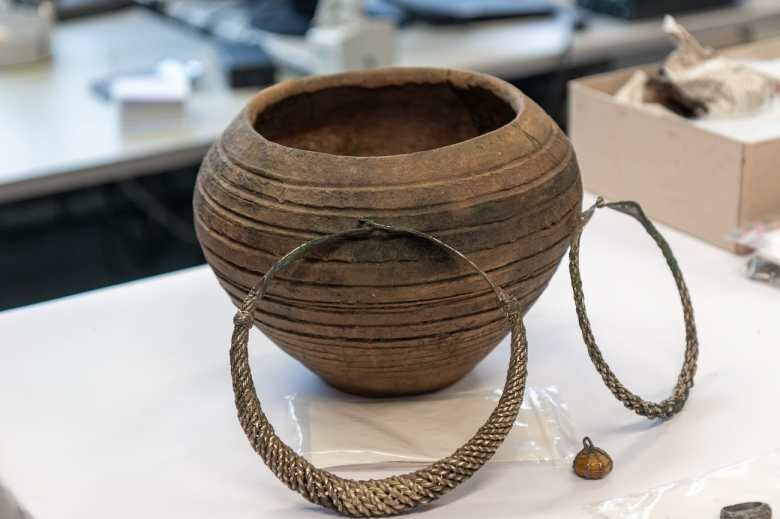
Clay vessel with decorations

